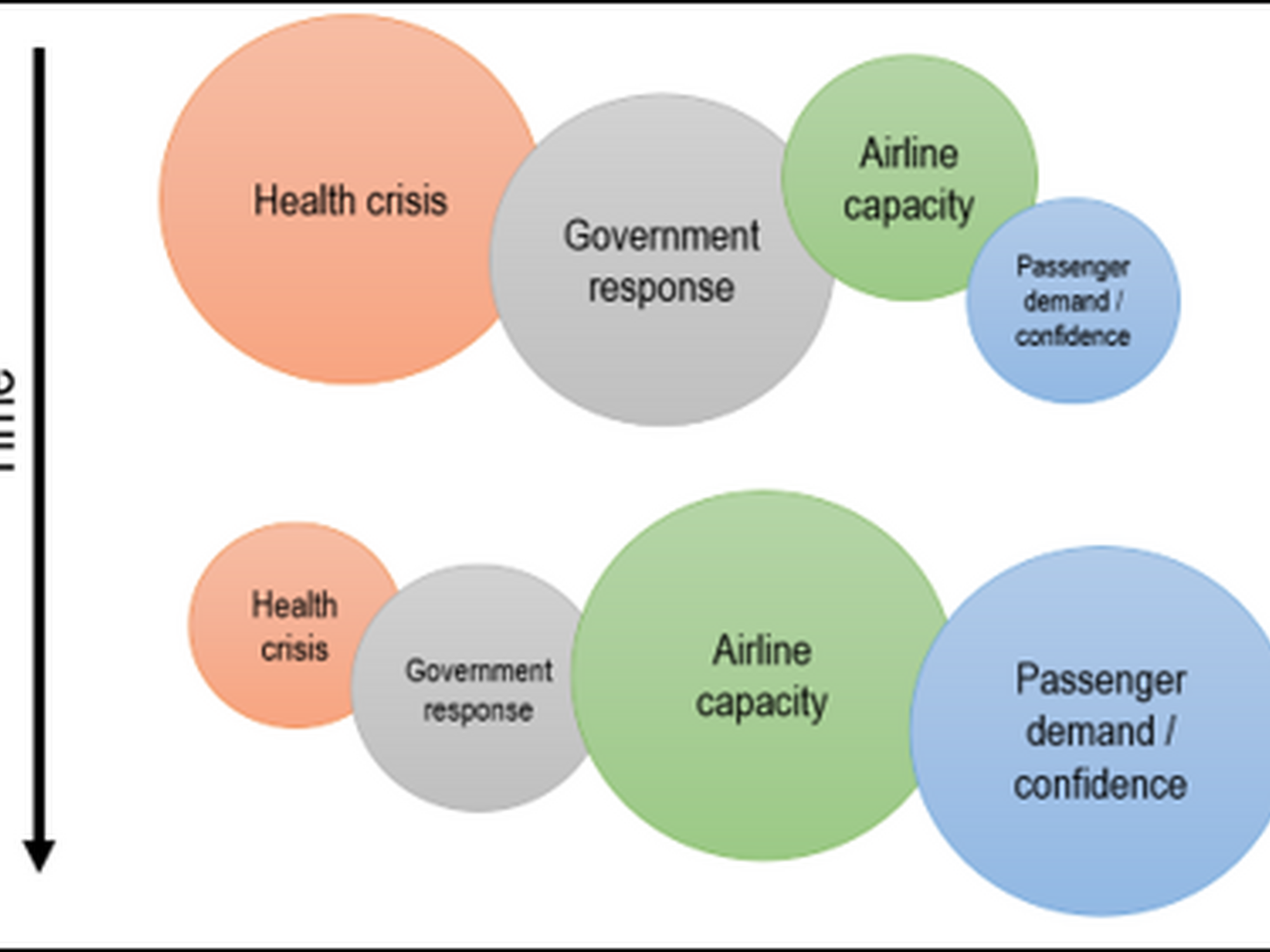“Airline networks and connections are vital for economic development. This crisis demonstrates that without a functioning aviation infrastructure and connectivity, the impact on the global economy will be even more severe”
Martin Gauss, AirBaltic CEO
The COVID-19 pandemic is, first and foremost, a national health crisis. However, it is already an economic one too. The effects of the COVID-19 crisis on the global health and economy systems are already more severe than any other past disruption.
It is the view of Cape Town Air Access (CTAA) that air connectivity, followed by passenger confidence, will be the biggests drivers in re-establishing initial international trade, business and tourism connections for the Western Cape, and a sizeable part of economic recovery during and post the COVID-19 crisis.
We believe that, within the constraints of travel restrictions and intensified health and safety measures, a concerted air route development effort will lead to a faster recovery in supply of- and demand for air services, which, in turn, will provide stimulus for the economic recovery.

Graph: Change in importance of external market forces driving air connectivity
The external market forces that drives air connectivity during this time are:
- the evolving health crisis,
- government response,
- airline capacity and
- passenger demand / confidence
These four overarching market forces will change in importance as time advances. In the short term the health crisis and governments response will be the driving forces and inhibitors of air connectivity. As time passes and the health risk diminishes, airline supply and passenger demand / confidence will become the major driving forces in air connectivity and recovery.
The team is aware that the Risk Adjusted Strategy from South Africa's national government with five levels of operation allows for very limited domestic air travel on Level 3 with all air travel only permitted on Level 1. It is assumed that the South African recovery will be slower than other global regions, all of which are in a more advanced stage of the pandemic, except for the rest of Africa. The assumption therefore is that most major source markets for trade and tourism will be unlocked and ready when South Africa lifts travel restrictions and the main international carriers will be unrestricted to initiate services into South Africa.
Whichever recovery scenario plays out, an intensive and focussed route development effort will be required by Cape Town Air Access, its private and public sector partners and the extended Western Cape business and tourism fraternity. The route development interventions will have a much greater chance of success with an earlier international start as airlines will be more willing to fly as soon as possible to minimise losses and generate much needed revenue. If the start gets pushed out, airlines will find alternative destinations and markets and a return to Cape Town will take longer or not happen at all in some cases.
The groundwork for resumption of air travel cannot wait until after the crisis has passed and has, in fact, already started. Measures to prepare the Western Cape aviation industry for resumption of services should commence immediately.
- Currently, airlines are the weakest link in the chain as they require liquidity to survive and as has been the case more airlines will struggle to stay afloat in a prolonged shutdown scenario.
- Both airlines and airports will require financial relief measures to absorb losses due to reductions in air travel.
- Additional investments need to occur from airlines and airports to ensure proper health and safety measures to mitigate risks for passengers, therefore de-risking the industry.
- Subsequent measures should place the focus on reigniting demand and instilling passenger confidence to travel, ensuring sustainability going forward.
A favourable development is that Cape Town and the Western Cape’s geographic location encourages point-to-point traffic, as passengers are expected to prefer direct non-stop connections. Another positive development is that Cape Town is a suitable destination for the new generation of widebody aircraft such as the Airbus A350 and Boeing 787, as many airlines are prematurely retiring older aircraft models to save costs. It is also expected that in the medium to longer-term carriers will look at new routes and new territories, following the initial period of recovery, thereby filling newly vacated gaps and capitalising on the market serving capabilities of new aircraft.
The initial domestic, regional, and international passenger market recovery will be led by air travel for business purposes, followed by a gradual increase in VFR (visiting friends and relatives) trips, more specifically for domestic air travel. As passenger confidence returns and the industry demonstrates the successful mitigation of risks associated with disease transmission, holiday and tourism travel will follow. Air cargo already plays a part in increasing capacity utilisation as many airlines are converting passenger planes into cargo aircraft during the crisis, thereby aiding in economic recovery.
The CTAA team has identified six overarching focus areas that will contribute to a speedier return of flights and a sustained increase in flight capacity, domestically and internationally, followed by passenger demand into Cape Town and the Western Cape. Some as part of the short-term planning phase taking place now, some as part of the medium-term recovery phase over the next year and finally the long-term quest for sustainability and expansion going forward.
The six focus areas are:
- Lobby national government for an earlier start of international flights,
- Target the international air charter market,
- Target international carriers to resume services to Cape Town,
- Focussed interventions on air cargo,
- Target business travel,
- Supporting the aviation sector for relief on aviation charges.
For more detail on the recovery plan, or to chat further with the Cape Town Air Access team, get in touch via the form below.
